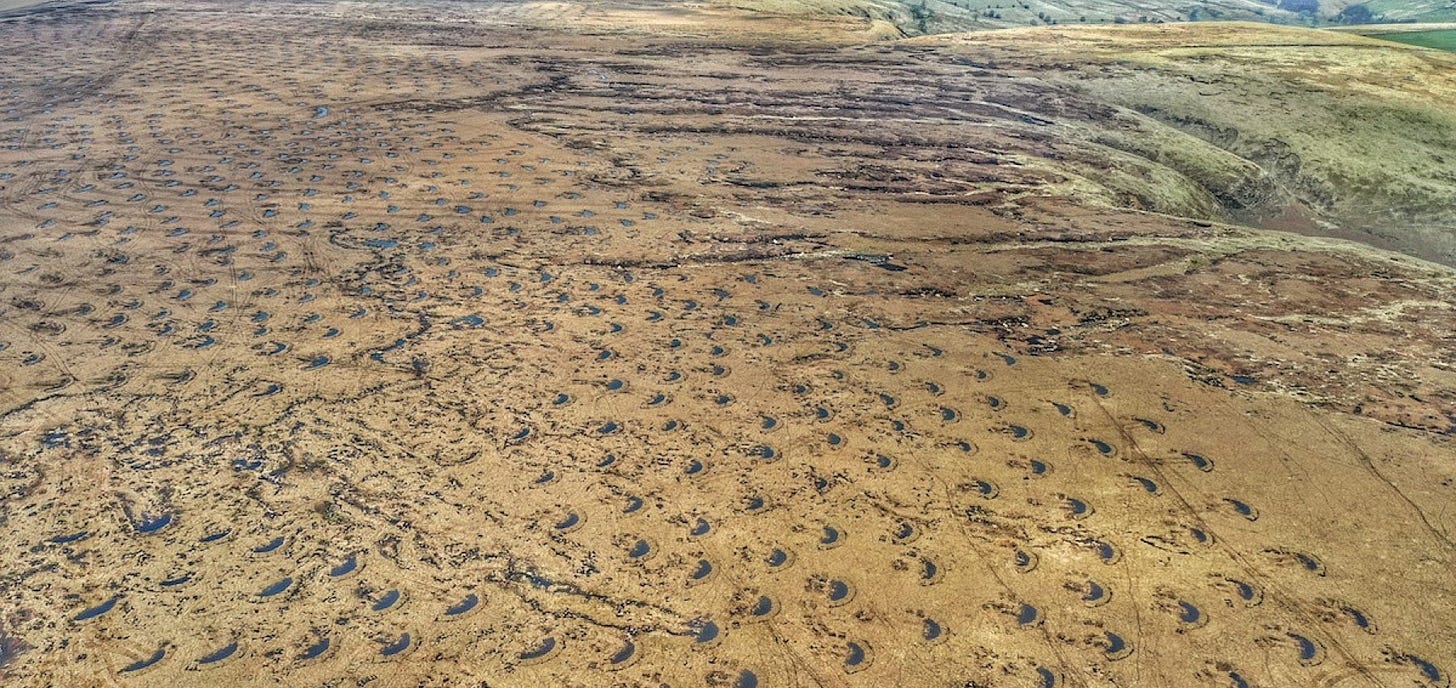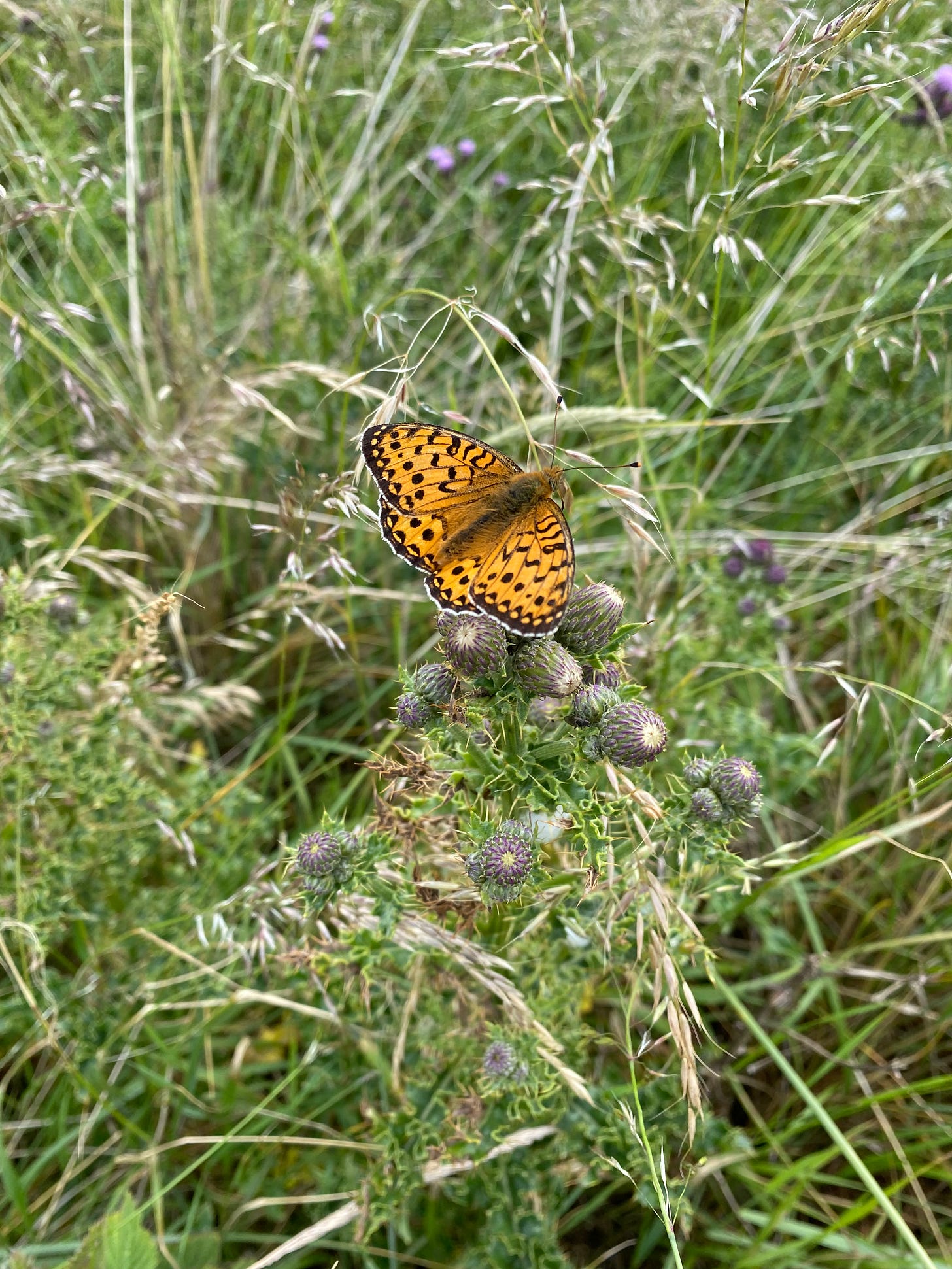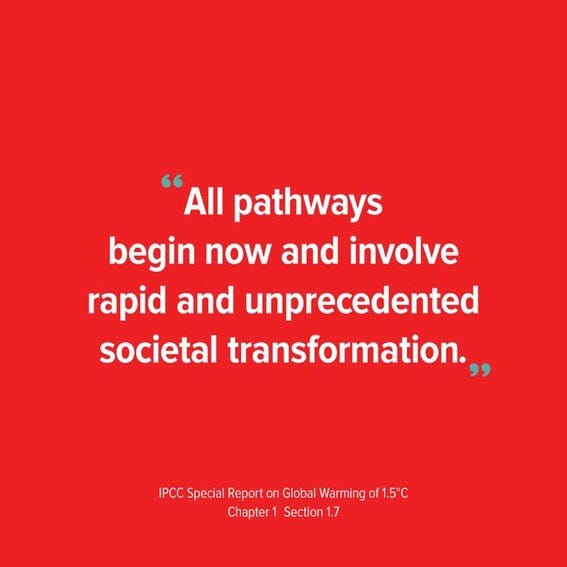Regen Notes 16
Pollinator Loss, Consulting, Biodiversity Net Gain, Carbon Peak, Peatbog Super Heroes, Mushrooms, Zoom Regenerative, Locus, LFE Masterclass, Folk on Foot, Spell Songs.
Welcome to Regen Notes 16, a fortnightly newsletter of regenerative news, stories and more, with a sideways focus on the built environment, curated by Martin Brown.
Regen Notes is a companion to Zoom Regenerative, where we join the regenerative dots, share themes and work that invigorates, inspires and feeds our curiosity.
Regen Notes is 100% reader-funded. If you value independent regenerative curation and journalism, please consider supporting by becoming a paid subscriber.
“Everything we need to avoid the exponential impacts of climate change is doable. But it depends on solutions moving exponentially faster than impacts.” Christina Figueres
Pollinators
New global risk index anticipates loss of important pollinators. A new index published in the journal Nature Ecology and Evolution, with far less coverage but with equal importance to the IPCC Report, not only forecasts what types of pollinator populations are declining and where, but also predicts how those declines will impact humanity. Roughly 75 percent of all crops and flowering plants rely on pollinators to reproduce. Declines in pollinators and pollination services could impact not only food production, but also the health of entire ecosystems. The assessment blames these threats on land use, agricultural practice, pesticides and climate change, among other linked causes. A global-scale expert assessment of drivers and risks associated with pollinator decline
Consulting
WLC Roadmap
WorldGBC launches consultation on EU Policy Whole Life Carbon Roadmap
Biodiversity
Seeking feedback about the Small Sites Metric published by Natural England in July 2021. The Small Sites Metric is intended for use on small development sites which do not contain any high or very high distinctiveness habitats.
Biodiversity Net Gain
Biodiversity Net Gain is embedded in The Government’s Environment Bill, likely to be given Royal Assent and pass into law this year. The bill promises to transform the UK environment.
New developments, the Bill states, “will happen in the right places, delivering maximum economic benefit while taking into account the need to avoid environmental damage.”
But as BEAG (Buckinghamshire Environment Action Group) points out “In the context of eco-collapse, we must do more than take environmental harm “into account” in the relentless drive for economic growth” … “it has not yet been demonstrated that “net-gain” works. There are several major issues here. One is that, where on-site net gain can’t be demonstrated, developers will have to find offsetting land elsewhere. Land available for nature will be built on and reduced. At the same time, land available for offsetting will also diminish”.
If the UK Government is sincere about increasing biodiversity in order to avoid a catastrophe, it should not posit developers as the saviours of the natural world, pinning its hopes on uncertain gains. There is another option, one that doesn’t suggest that development and biodiversity increase can go hand in hand, that it’s possible to destroy nature and enhance it too. Instead, there is the option of avoiding harm to the environment in the first place – to protect and enhance what we already have, not to “build, build, build” on it.
Carbon Emissions Must peak in 4 Years
Guardian: Global greenhouse gas emissions must peak in the next four years, coal and gas-fired power plants must close in the next decade and lifestyle and behavioural changes will be needed to avoid climate breakdown, according to the leaked draft of a report from the world’s leading authority on climate science.
Subscribe now to Regen Notes and support independent climate blogging and journalism at this critical moment in history.
Peat Bogs: Carbon Superheros
An area of English moor has been transformed into a giant sponge to absorb CO2. Over the last six months, conservationists have sculpted 3,500 scallop-shaped bunds — or dams into peatland at Holcombe Moor in the West Pennines. The banks were created to trap water and rewet the peat, which has dried out as a result of pollution, overgrazing and moorland fires. Reports Positive News
Peat bogs store twice as much carbon as the world’s forests but release those emissions when they are degraded. Restoring them, therefore, is vital in the race to stabilise our climate.

Mushroom Buildings?
The Possibilities of Using Mycelium in Architecture. Fungi are everywhere. In the air, in the water, in our bodies, in the trees, in the ceilings of our bathrooms, underground. They can be mushrooms (edible, medicinal, hallucinogenic, or very poisonous), or take other simpler forms, such as molds. They can trigger illnesses, but they can also produce antibiotic remedies, such as penicillin, or help ferment amazing cheeses and breads. Could they also be the future of packaging and building materials? (Thanks Taleen Joseffson for highlighting this resource)
Zoom Regenerative

ZR Locus Group
An invited ZR Locus group met yesterday to shape the future structure, format and scope of zoom regenerative. We explored many beautiful and inspiring ideas and shifts for a vibrant ZR future to ensure we remain “a global conscious collective that, like a forest web of life, reciprocates and invigorates, nurtures and heals, cross-pollinating regenerative practices for a healthy, thriving future”
We all live on planet earth, locally.
Why a locus group? As a regenerative focused group, we need something more connected than a ‘focus’ or ‘advisory’ group. With locus defined as the ‘place where things happens’ or ‘the central area of interest in things being discussed,’ it seems a perfect fit with ZR. It also resonates so well with Carol Sanford’s locus of control within the context of a Regenerative Business.
Zoom Regenerative returns for the Autumn series in September.
Living Future Europe Master Class
The IPCC #ClimateChange report launched recently along with the leaked (draft part 3) report starkly illustrate the disastrous tipping points we face … all so important then that we understand what is possible through the #regenerative #positive tipping points to be covered on our Living Future Europe #masterclass. Although the registration closed on Sunday, readers of Regen Notes can still register here if you do so quickly.
Sign up. Show up. Take action.1
Celebrating
Against the backdrop of the gloom from the IPCC Report, it is vital we celebrate and be inspired by so much good happening around us, in the built environment, in nature, rewilding and from those who share so beautifully in words, music and art.
If you have not yet listened to the Folk on Foot podcast series, hosted by Matthew Bannister, you have a real treat of a back catalogue awaiting you. The most recent edition with Johnny Flynn and Robert Macfarlane walking, singing and inspiring on a Cambridgeshire walk, featured a neolithic track, an Iron Age fort, a Roman road, a holm oak, cow pats, a mighty avenue of sun-dappled beech, a buzzard, a grasshopper orchestra, a dragonfly, the stories of a mysterious white horse and a dread augury and countless busy, buzzing bees. Oh, and no fewer than six extraordinary songs performed along the way.
And related, as curating this edition of Regen-Notes, I listen to the beautiful Spell Songs - the Lost Word Spells from Robert Macfarlane set to music. The final song, The Blessing, inspired by the spells and written by the artists, is just sublime, a blessing or meditative recognition and sharing of the beauty around us.
Keep Connected with Link Tree
with a nod to Patagonia Action Works





